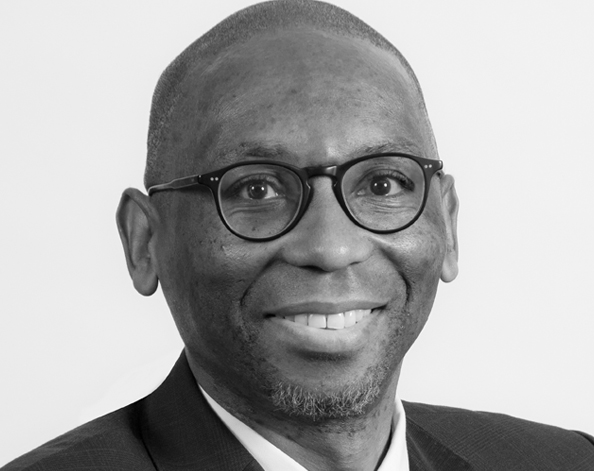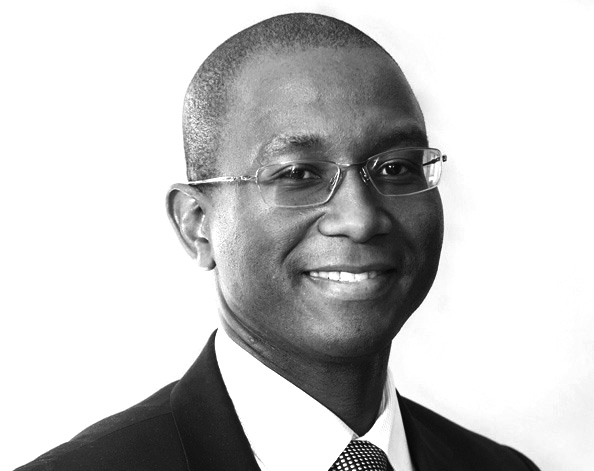The drastic measures adopted in South Africa and around the world in March, to curb the spread of Covid-19 through harsh lockdowns would have had an even more negative effect on the economy had it not been for the capability for people to work remotely.
Thanks to access to networks and connectivity, many South Africans were able to work from home, to keep important parts of the economy going. Many believe that even after all restrictions are lifted, the work culture will not go back completely to what it was.
How did the telecommunications sector manage this sudden, but fundamental transition in work and life behaviour? How well did they manage to roll out connectivity into homes, especially considering that their own teams also needed to work remotely?
In this episode of The Other Side, we hear from two leaders in the telecommunications industry, Shameel Joosub, CEO of Vodacom, and Raymond Ndlovu, CEO of Community Investment Ventures Holdings, which owns fibre network firms Dark Fibre and Vumatel. The talk is facilitated by Reagile Moatshe, Head of Supplier Finance at Investec.
Listen to the full discussion on the go
Listen to the full discussion between Shameel Joosub, CEO of Vodacom, and Raymond Ndlovu, CEO of Community Investment Ventures Holdings, facilitated by Reagile Moatshe, Head of Supplier Finance at Investec.
Subscribe to Investec Focus Radio SA
The Vodacom CEO highlights how the increased demand for connectivity picked up when the lockdown was announced in March. The big question for Joosub at the start was whether the business could make the transition to having 90% of staff working from home – for which the answer was a resounding yes.
“We had to make sure our staff had the requisite tools at their disposal whether it be laptops or PCs or connectivity. We also had to make sure that we had a lot of the equipment in country at the time Covid-19 hit,” he says.
“What’s been interesting is the amount of data consumption, how that’s increased, and that’s resulted in us having to front-end a lot of our capital investment to ensure that we can keep up with the volumes and really be able to provide a quality network to our customers during this time,” he notes.
Ndlovu agrees, pointing to a sharp rise in demand. “The adoption of digital infrastructure and services has just skyrocketed. The level of consumption, the connections that we have experienced particularly in terms of fibre to the home with this working from home and working remotely has shown that the appetite in our market is insatiable,” he says.
Ndlovu says Covid-19 restrictions have also accelerated changes that were already under way.

The level of consumption, the connections that we have experienced particularly in terms of fibre to the home has shown that the appetite in our market is insatiable.
Joosub says the sudden shutdown wasn’t the only challenge being faced in March and April.
“We were dealing with three different challenges as we went into Covid-19. One was a big price drop [data prices were reduced from 1 April] where you would have seen increased utilisation of people taking the extra spend and some of it being spent in extra usage,” he explains.
“The second big issue was the bad rolling power blackouts and load shedding, which was a huge issue for us and then, of course, it was the increased traffic from Covid-19.”
These were the three factors behind the decision to upfront capital expenditure in the first quarter in South Africa.
Adds Ndlovu: “Despite the fact that the onset of Covid-19 was quite sudden, our supply chains were not negatively disrupted in any way. We were also able to plan with the advent of the actual lockdown, especially level 5 and level 4, where very little movement was possible.”
“It was possible for us to then say, how do we increase the level of uptake? How do we increase the intensity of access to connections? That’s really where the opportunity was in the immediate sense,” he notes further.
One of the big drives for Ndlovu has been to increase the level of digital inclusion so that it’s not just the well-served customers who benefit.
“We are trying as much as possible to invest in innovation, and we successfully concluded a proof of concept in Mitchells Plain in the Western Cape where we started our lower LSM fibre product. It’s the first in the world that is prepaid, and we’re finding that that’s really where the growth in the South African market is going to be,” he says.
“We’ve spent a lot of time and money making sure that the technologies that we deploy in that space allow us to be a lot more price-sensitive while not compromising the quality and the nature of the product offering that we do have. South Africa has just under 16.9 million households, so there is a long way to go and we believe that a significant amount, about 25 to 30% of those households, are an addressable market for the kind of product we have.”
READ MORE: 4IR and Africa: Promise or peril?
Joosub sees opportunities to grow the market in other ways, such as digital payments and financial services. For example, Vodacom has recently teamed up with Alipay (part of Alibaba) to allow users to pay, shop, invest, save and even have access to nano-credit, through an app.

We are essentially trying to put the cell phone in the centre of a person’s life, from where you buy, from where you pay, lend, shop, invest, save while harnessing big data and loyalty as well.
He adds that Vodacom has 52 million customers in Africa, using its financial service products.
“We are already the fifth largest insurer [in South Africa]. So we have become quite a meaningful player in the sector,” he says.
Looking to the future, both Ndlovu and Joosub believe government and the regulatory environment have a crucial role to play in broadening access to telecommunications services, and in so doing, driving growth and upliftment.
Ndlovu says dialogue and “much more positive interaction” with government stakeholders will go a long way towards bridging the gap. “Everyone was quite pleased with the emergency release of some of the spectrum, and I think that some of these opportunities that Covid-19 has brought about have helped to accelerate the involvement in engagement from a policy point of view,” he says.

Government and the regulatory environment have a crucial role to play in broadening access to telecommunications services, and in so doing, driving growth and upliftment.
Joosub says ongoing access to spectrum needs to be addressed, however. “If we don’t have access to spectrum, the telco sector will get left behind,” he says. “I think we were one of the first countries in the world to launch 2G, one of the first countries to launch 3G and 4G – we made a plan by reframing spectrum and I think it’s disappointing on 5G that we’re not up there.”
Joosub says that although 5G has been launched, the sector needs access to spectrum on a permanent basis, which will allow industries to develop around it. "If you look at how apps have grown because of access to data, in the same way new industries will pop up with the near real-time impact of 5G."
Ndlovu concludes that South Africa is well positioned as a modern digitally enabled economy, thus has the means and the technological capability to roll out 5G successfully.
“As providers of fibre infrastructure to support that roll out we just have to make sure we are firmly standing close behind and enabling the investment in 5G infrastructure. For us, that presents a significant investment opportunity alongside the mobile network operators.”
About the author

Patrick Lawlor
Editor
Patrick writes and edits content for Investec Wealth & Investment, and Corporate and Institutional Banking, including editing the Daily View, Monthly View, and One Magazine - an online publication for Investec's Wealth clients. Patrick was a financial journalist for many years for publications such as Financial Mail, Finweek, and Business Report. He holds a BA and a PDM (Bus.Admin.) both from Wits University.
Get Focus insights straight to your inbox








